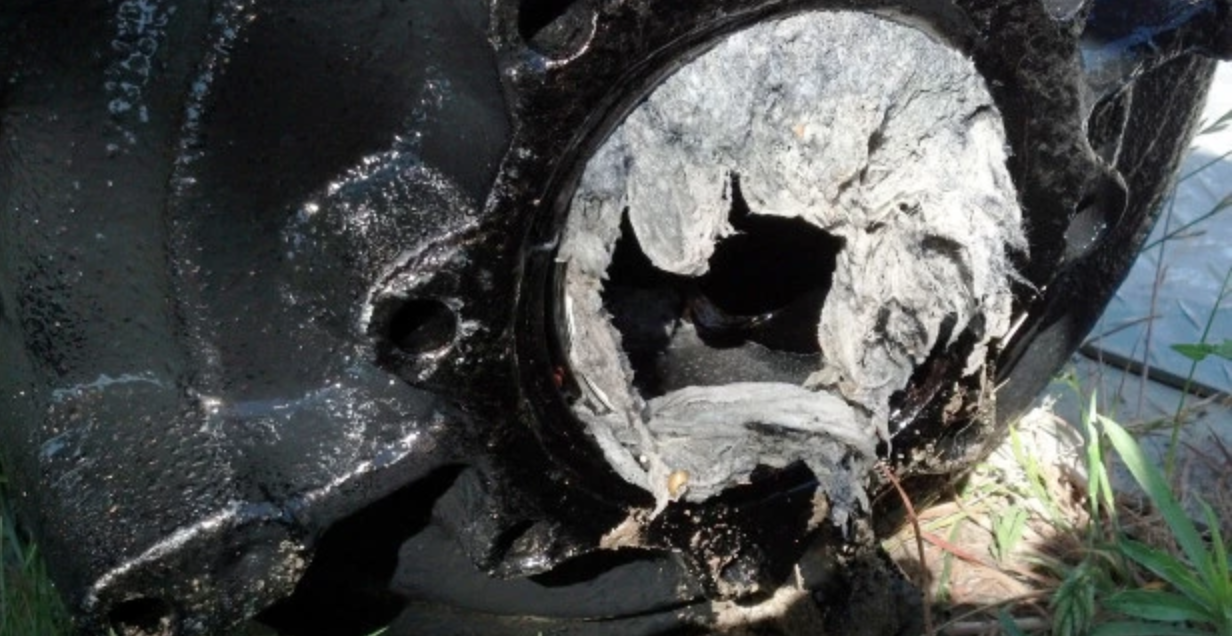EAST BAY TIMES: Don't believe any wipes 'flushable,' agencies warn
01/04/2019 9:56 AM

Louis Solana/Ironhouse Sanitary District At least one of Ironhouse Sanitary District's pump stations is pulled offline and cleaned of wipes, as seen above, each week to prevent sewer overflows in the streets. Other districts have similar issues throughout their systems.
By RONI GEHLKE | Correspondent
PUBLISHED: December 9, 2018 at 5:00 am | UPDATED: December 17, 2018 at 7:15 pm
As with many products, the convenience of today can be the bane of tomorrow. Case in point: disposable wipes. They may be “flushable,” but sometimes they don’t get too far. That’s the message that several East Contra Costa County sanitary agencies have banded together to send to local residents.
The two-month campaign is aimed at local residents who are taking advantage of the increased availability of personal hygiene wipes touted as “flushable” on their labels. The agencies contend that these wipes may indeed be flushable but are unfortunately getting clogged in sewer pipes and plants throughout East County.
“Most people are led to believe that disposable wipes are safe to flush down the toilet, but this is not the case. During the sanitation process, it creates clogging problems in our system, and this means higher costs to our ratepayers,” said Mike Davies, the town of Discovery Bay’s general manager. “Regardless of the type of wipe, trashing instead of flushing is a win-win for everybody.”
The agencies involved include the town of Discovery Bay, the Byron Sanitary District, the city of Brentwood, Ironhouse Sanitary District (Oakley and Bethel Island) and Delta Diablo (Antioch, Pittsburg, Bay Point). The advertisements are running on the back of Tri-Delta Transit buses, in newspapers, social media and are even playing on theater screens.
The message reads “No wipes in the pipes — only toilet paper down the toilet,” and the picture in the ad shows a hand holding a wipe over a trash can.
“We aren’t asking people to stop using personal hygiene wipes,” said Casey Wichert, wastewater operations manager for the city of Brentwood. “We’re only asking that you don’t flush them but rather throw them in the trash.”
Despite the problems and outcry from wastewater agencies across the nation, the personal hygiene disposable wipes industry is a multibillion-dollar market and is still growing, according to a recent wastewater industry report. People are particularly averse to disposing of personal hygiene wipes in bathroom trash cans, which is understandable, but it needs to change, Wichert says.
“People tend to flush everything that will clear the toilet,” he said. “All of which contributes to clogs.”
So if you use disposable wipes, put them in a garbage can or use a covered diaper pail to store them until the trash is picked up. Because in the end, we all end up paying the hidden cost of “flushable” wipes.
Roni Gehlke can be reached at oakleynow@comcast.net.
